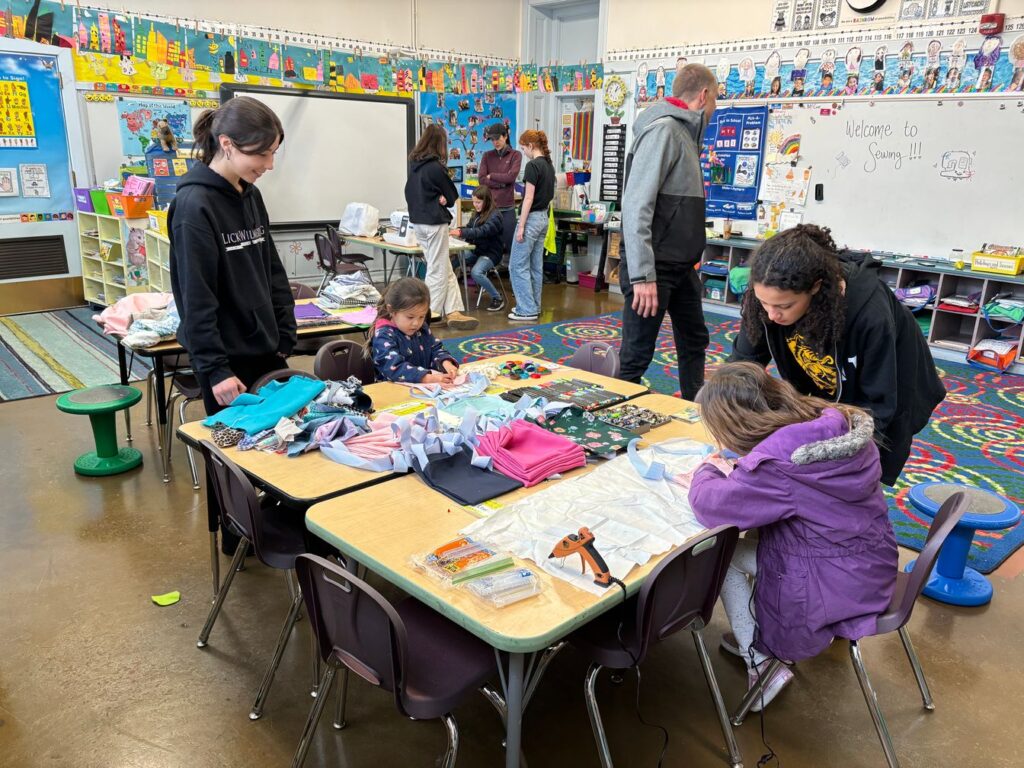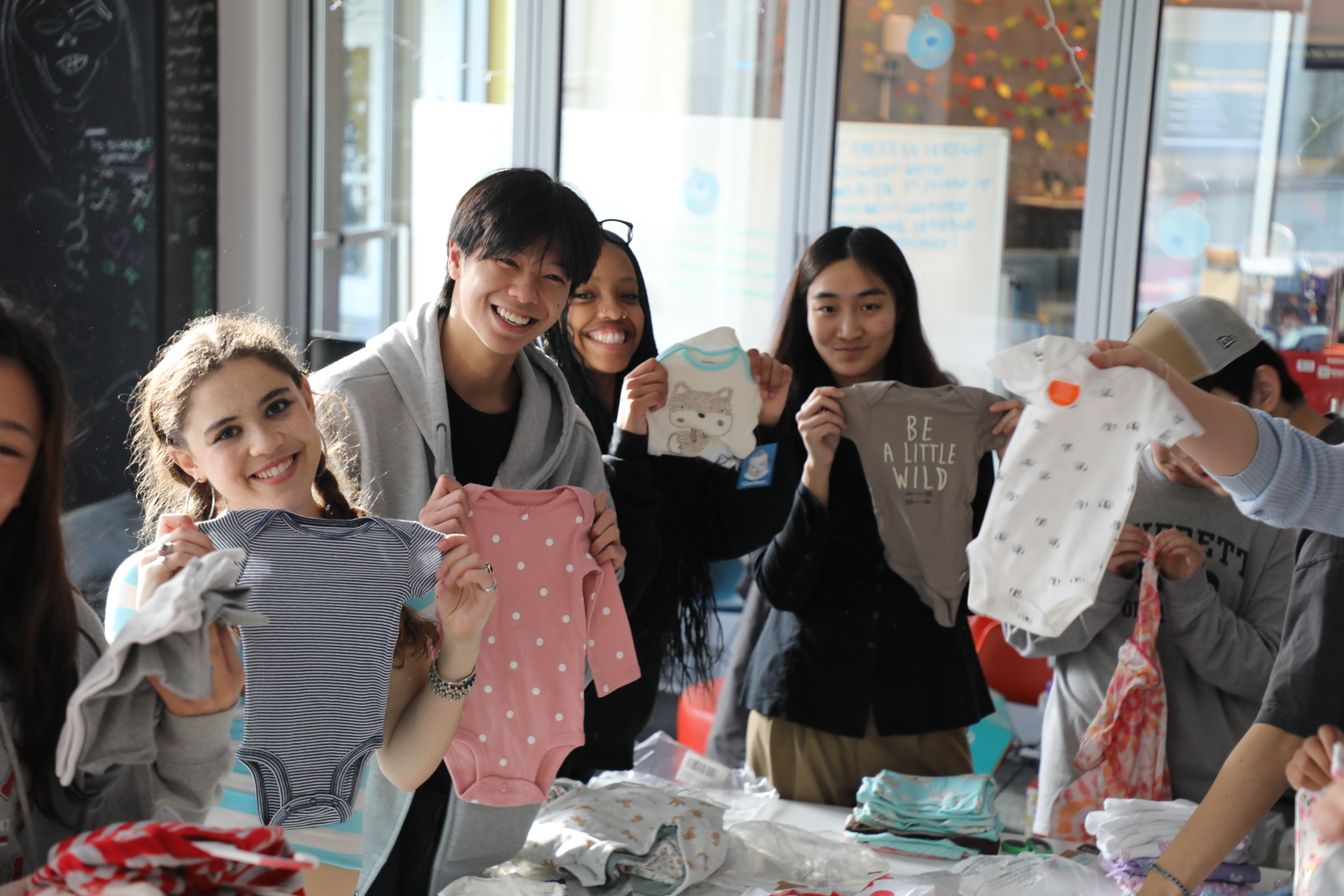Kicking off this new school year, sophomores are tasked with completing Lick-Wilmerding’s 40-hour Public Purpose Program (PPP) requirement. To ensure that their work is meaningful, students need to utilize LWHS’s resources and connections to find a community that they are passionate about.
While PPP is a major aspect of being a part of the LWHS community, its establishment is newer than most students may think. In the late 2000s, PPP was known as Jellis Block, named after one of the founders of LWHS, Jellis Wilmerding. Jellis Block started as community service that helped better the LWHS community along with a week-long intersession where students took different classes generated by faculty. In 2006, The Center for Civic Engagement was created with the help of Dr. Allen Adams, which led to an annual day trip to a volunteer site with students’ advisories.
Nine years ago, the 40-hour PPP requirement was added with the intention that LWHS students would become more involved in their surrounding communities. “It’s kind of a two-way impact. We’re both providing a service that creates change out in the world and is also letting ourselves be changed through learning,” said Ravi Lau ’92, the director of PPP at LWHS.

Currently, LWHS provides PPP opportunities that are either educational, in service to LWHS, working in housing and hunger, or participating in gardening and increasing food access. Some of these opportunities include going to organizations such as Florence Fang Farm, Portola Greenway, El Dorado Elementary School and Alemany Farms.
The current 40-hour PPP requirement holds many mixed feelings in the LWHS community. Some students appreciate how it gives students a chance to discover causes they are curious about, foster community and follow LWHS’s mission. “Many kids haven’t had the chance to volunteer or work anywhere… this gives them the opportunity to figure out their values and what issues they care about or are passionate about,” Lau said.
Street Soccer U.S.A is an organization that aims to fight poverty and strengthen communities through soccer. Tanish Ramchandani ’25 is a volunteer with Street Soccer U.S.A who coaches kids on Sundays and organizes tournaments. “It’s just a fun thing to do because you don’t really feel like you’re a coach. You just feel like you’re joining in on their fun,” said Ramchandani.
Ilana Zimmerman ’26 has their own passion project, having completed over 100 hours with the Oakland Unified School District to create toys for kids with special needs. This project has evolved into a club, which allows other LWHS students to adapt toys and create their own projects.
In addition to these collaborations with organizations, every Tuesday and Thursday LWHS holds Community Tutoring, a program that aims to build community through tutoring. Though the majority of the tutors are sophomores who are trying to complete their hours, upperclassmen like Kai Liu ’25 still show up due to the connections they’ve made. “It was special…It was always just fun to have a little energy boost at the end of Tuesdays and just something to look forward to,” Liu said.
However, others feel that the 40-hour requirement lessens the meaning of one’s work. “It becomes, like many other things around here, something that is just about the grade,” said Lau. Some students found the 40-hour requirement stressful. “It felt like I had this deadline,” said Simone Hare ’26.
Hare appreciated the PPP projects posted on Mobile Serve and the opportunity to give back. However, she felt she prioritized getting hours rather than recognizing the impact of her work. “There was honestly not really an interest in gardening and digging dirt since it had nothing to do with what I am passionate about,” Hare said.
Jonah Rucker ’26 thought the PPP requirement helped encourage students to give back to surrounding communities but also felt the negative effects. “Sometimes it felt like something I needed to complete, rather than just a good deed to do,” Rucker said.

The Center aims to take student feedback and to work continuously to help further develop the PPP program. November 15 will be LWHS’s first full PPP day, something The Center is experimenting with. “I’m hoping that we can find more time for these activities during the full school day rather than discrete pulled-out moments,” said Lau.
The Center is also working to strengthen the public service component of PPP classes by creating strong connections with outside organizations. For example, the LWHS performing arts program has had an ongoing relationship with the Homeless Prenatal Program. At every performing arts show, donations of onesies, diapers and canned foods are encouraged in place of paying for tickets.
Another goal is to ensure that teachers can connect in-class learning to the outside world. “All these things that we’re doing in our classrooms, how is it relevant?” said Lau, “How can we use these skills to create change in society?”.
The Center’s hope is that all LWHS students not only help others, but also find community in the process. “If you’re able to make an impact and provide value to an organization, that feeling that you get like, ‘wow, we really contributed’ brings people closer together,” Lau said.






